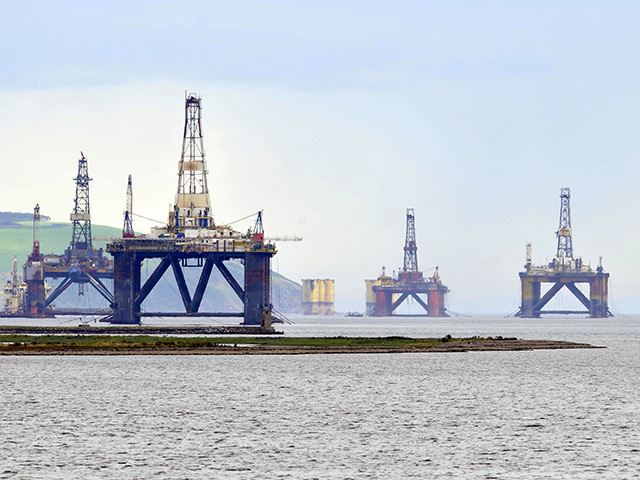
An independent Scotland could set up an oil fund almost immediately, according to the SNP government’s economic advisers.
The Fiscal Commission Working Group said it would be possible to establish a fund – maybe as early as 2017-18 – backed up by a short-term “stabilisation fund” to cover lean times when oil and gas revenues fall.
Its report said it would be possible for the Scottish Government to run a deficit while putting money into the fund.
Pro-union campaigners claimed the need for a stabilisation fund highlighted the dangers of depending on volatile oil and gas prices.
They warned of service cuts – equal to a third of the health budget – and higher taxes to cover any spending gap.
The working group of five economic experts includes two Nobel Prize winners, Professors Sir James Mirrlees and Joseph Stiglitz.
READ MORE:
Analysis: How Scotland’s oil fund money would flow
Comment: Scottish oil fund proposal will require Holyrood to show courage
It supported SNP policy to set up a fund along the lines of the one in Norway, now worth around £470billion and expected to top £720billion by 2020.
According to the experts, deficits are not unusual. They said the Norwegian economy was in downturn when the fund was set up in 1990, with high unemployment and a budget deficit.
Finance Secretary John Swinney said Scotland’s fiscal position would strengthen with economic recovery and could be below a 3% deficit by 2017-18.
“This would allow an independent Scotland to consider investing modest sums into a long-term savings fund without an offsetting change to public spending or taxation,” he said.
“In the long run, the economic levers available under independence will enable us to grow the Scottish economy more quickly and thereby boost tax revenues.
“Our ambition is therefore that, in time, a greater proportion of Scotland’s oil and gas wealth be invested for the future as the country moves towards fiscal balance.”
The fiscal commission said that, while oil revenues would have to be used to cover spending and reduce borrowing immediately after independence, a fund was still worth setting up because of the future benefits.
Former Labour chancellor Alistair Darling, chairman of the pro-UK campaign group Better Together, said the “inconvenient truth” was that all North Sea revenues went towards spending on public services, pensions and benefits in Scotland.
“Commonsense tells us that you shouldn’t borrow money and save it at the same time. It would be the equivalent of taking out a loan to put the money into your savings account.”
Scottish Liberal Democrat leader Willie Rennie said buried in the report was that the first step to investing in an oil fund was reducing the overall deficit.
“Alex Salmond’s oil fund could wipe £3.4billion off public spending. That’s one third of the health budget for the whole of Scotland,” he said.
Opposing sides in the independence debate were polarised over the benefits of setting up an oil fund.
Yes Scotland chief executive Blair Jenkins said: “There can be fewer more damning indictments of Westminster government than the failure to establish such a fund.”
Aberdeen Donside SNP MSP Mark McDonald, a member of Holyrood’s economy, energy and tourism committee, said: “Apart from the UK, only Iraq among the major oil-producing countries doesn’t have an oil fund, and evenIraq has a form of development fund.”
The chief secretary to the Treasury, Danny Alexander, said all the money for the two oil funds would be needed to keep the country running.
“The Scottish Government needs to explain what other cuts to spending or tax rises they are proposing to pay for its fund,” he said.
Scottish Labour finance spokesman Iain Gray said Norway had to make choices between saving for an oil fund and taxes to cover services.
“For example, Norwegians pay to visit a GP, pay for most prescriptions and pay the full cost of services from dentists and hospital specialists.
“Are these the kind of choices Mr Swinney envisages to allow him to start an oil fund?”
Tory finance spokesman Gavin Brown claimed an independent Scotland would be in an “inferior” financial position by 2016, and Mr Swinney would need to use oil revenues to cover spending.
“How on earth the Scottish Government would then be able to put money into not one but two oil funds is a mystery,” he said.
Recommended for you
